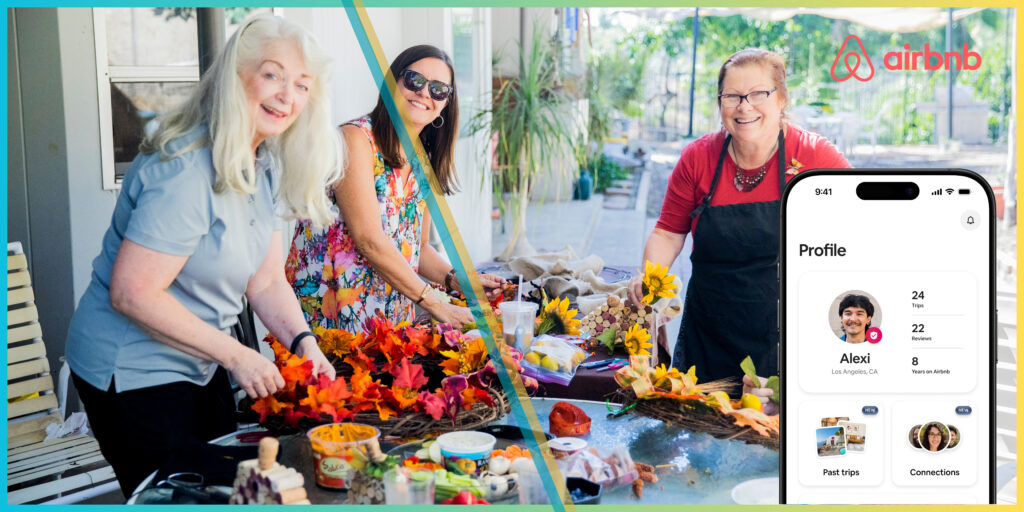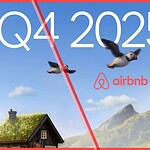How close is Airbnb to becoming a social network?
Maybe not in the classic Facebook or X sense—but if you’ve looked closely at the Summer 2025 Release, the answer might be: closer than you think. And what’s most striking is that it’s not a copycat move. Airbnb isn’t chasing massive scale. Instead, it’s building something tighter, more grounded—and arguably more valuable.
🧭 This Didn’t Come Out of Nowhere
If you’ve followed Brian Chesky’s interviews the last few years, this shouldn’t be a surprise.
He’s repeated one big idea:
“Loneliness is the crisis of this generation.”
So when Airbnb quietly rolled out deeper host and guest profiles, richer identity verification, and more ways to connect around Experiences, it wasn’t just for UX polish. It was strategic.
And now we’re seeing it come together:
- Guests can now see who else is attending an Experience
- They can chat before and after
- These connections show up in your Airbnb profile history, giving you a reason to reconnect
It’s subtle. But it’s very real. Airbnb is building a social network rooted in real-life interactions.
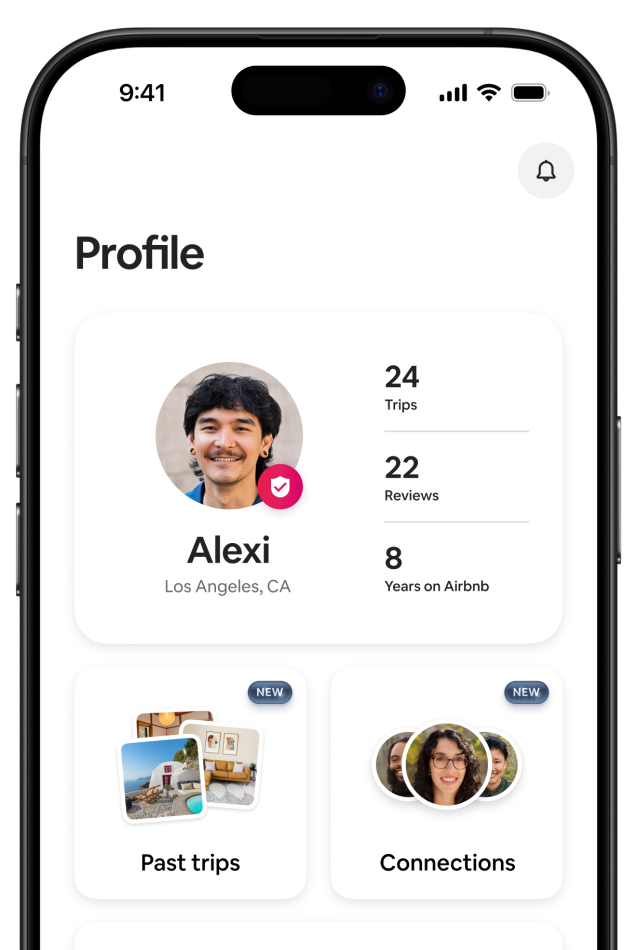
🧑💼 This Isn’t Like Facebook, and That’s the Point
Unlike most social platforms, this one isn’t built on self-promotion or memes. It’s built on people actually doing things together:
- Sharing a ramen-making workshop in Tokyo
- Hiking with a small group in Lisbon
- Touring a gallery with an artist in Rome
It’s not passive. It’s participatory.
And here’s why that matters:
✅ Fewer fake profiles
Everyone has to go through verification. And people who book trips, show up in person, and receive reviews? They’re real.
✅ Fewer toxic interactions
This isn’t X. This isn’t a comment section. The social graph here starts with shared, offline experience. The tone is warmer, the connections stickier.
✅ Higher value users
You don’t have to appeal to everyone. Airbnb’s network is built around people who:
- Travel (and spend)
- Book high-end Experiences (some are $200+)
- Leave reviews and receive them
In other words, it’s a trusted, verified network of global spenders. That’s strategic gold.
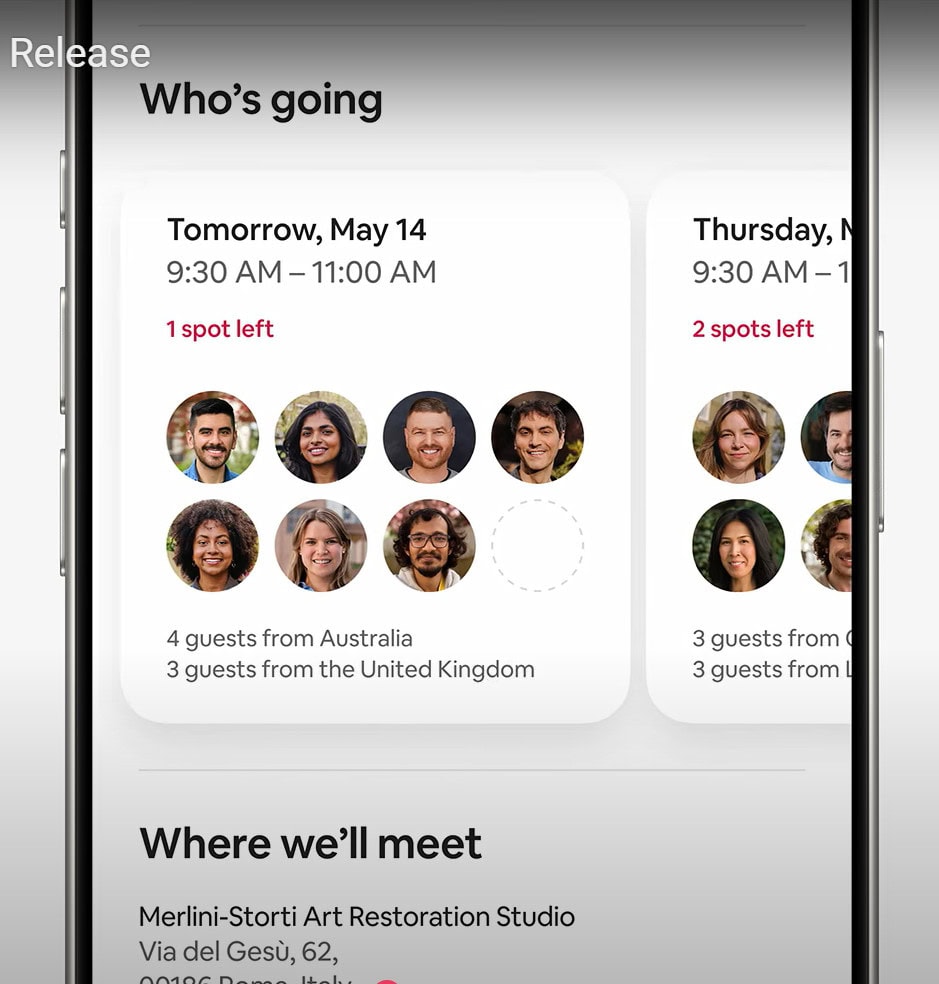
📱 The App Now Has a Reason to Be Opened Weekly
One of Airbnb’s long-term goals has been to increase app usage beyond just “a few trips a year.”
With this new social layer, they’re getting closer.
- Want to chat with someone you met on a group hike? You’ll open the app.
- Want to see upcoming local Experiences—even if you’re not traveling? Open the app.
- Want to plan something for your in-laws next week at your place? Services are there too.
All of this increases the stickiness of Airbnb. And it’s not just about travel anymore.
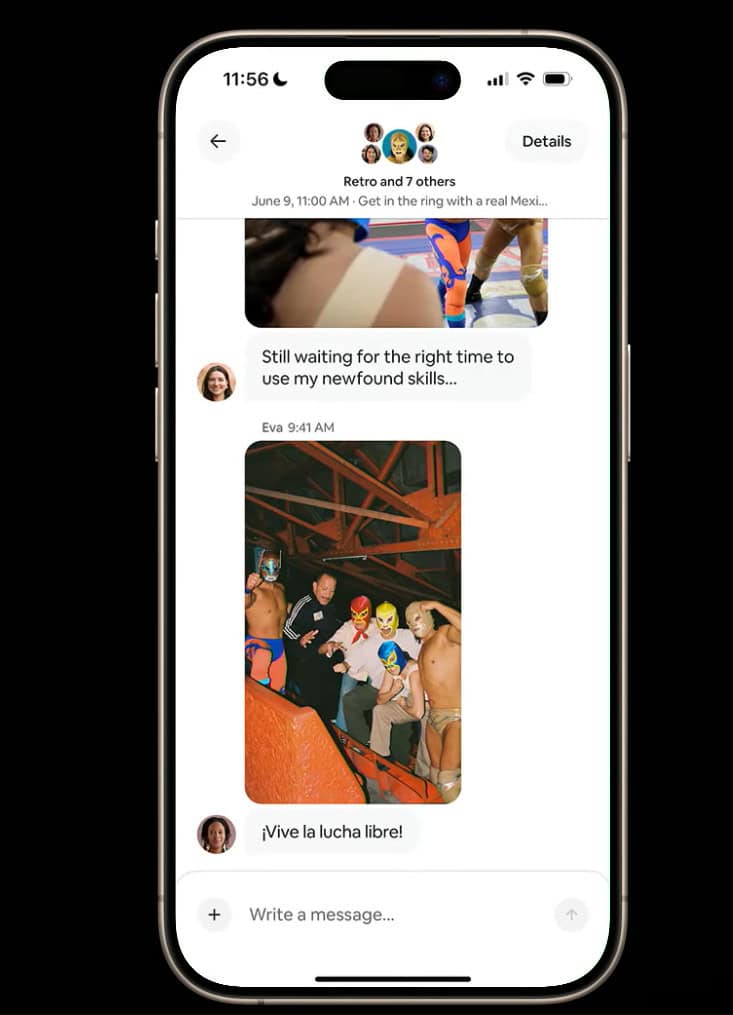
📊 The Data Opportunity Is Enormous
Think about the quality of Airbnb’s data now:
- They know where you’re going
- What kind of people you like to meet
- What types of activities you book
- What you reviewed, and who you connected with
- And now—where you might want to reconnect again
This isn’t just a social graph—it’s a taste graph, a location graph, and a purchase-intent graph all rolled into one. That opens the door for:
- Friend recommendations
- Roommate matching
- Potentially, even dating features
- And ultra-personalized upsells or content
And crucially—it’s not based on what you say. It’s based on what you do.
🚧 What Are the Limitations (and Risks) of This Social Shift?
Let’s be clear: Airbnb is building a new kind of social layer—but it’s still early. And there are open questions about where this is heading.
You’re not curating your own network—yet
Right now, there’s no public “add friend” button or news-style social feed. But something close is emerging. You do build up connections in your Airbnb profile, especially when you attend group Experiences or join chats.
We don’t yet know:
- If guests will be able to approve permanent connections
- If these connections will become visible to others, or simply shape recommendations
- If Airbnb will let users filter, remove, or hide past social interactions
Airbnb may not want a fully visible “social feed”—that could overwhelm people. But some kind of persistent connection graph seems to be forming quietly in the background.
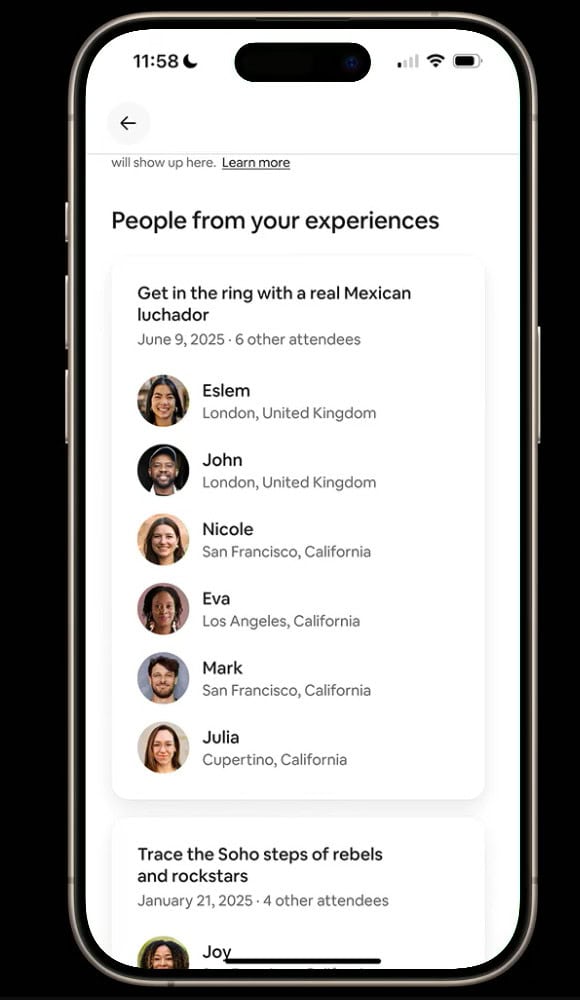
This is more than just messaging. It’s a shift to relationships.
Until now, Airbnb’s platform has mostly enabled introductions that perish—you message your host, you stay, you leave.
Now, we’re talking about relationships that persist.
People might reconnect after a shared hike in Peru or a pasta class in Florence. That’s powerful—but it also opens the door to some of the challenges familiar to larger social platforms.
If these connections start to feel more permanent, Airbnb has to be ready for:
- Unwanted contact
- Messaging that doesn’t feel safe
- Emotional pressure, misaligned expectations, or group dynamics gone wrong
Even good people can overstep. Even verified users can behave badly. So yes, the moderation burden increases—especially as the app encourages richer profiles and more interaction.
This isn’t a reason not to build it. But it’s a reason to build it carefully.
🧭 Conclusion: Airbnb’s Next Chapter Is About People, Not Just Places
With the 2025 Summer Release, Airbnb has made it clear: this isn’t just about homes, services, or experiences—it’s about connection. And not in the abstract, social-media sense. This is connection grounded in real-world action: verified people, showing up, doing things together.
That’s what makes this different—and potentially more valuable—than any traditional social platform.
But building a real-life social network is no small task. Airbnb has to walk a careful line:
- Keep things trust-based, not invasive
- Let people form lasting connections, without compromising safety
- Avoid replicating the worst behaviors of the wider internet, even as it invites more persistent relationships
For hosts, this might seem a little outside your day-to-day operations. But it matters. Because if Airbnb becomes the place where people connect, recommend, and return—it becomes more than a booking site. It becomes a habit.
And that habit—of checking the app not just to travel, but to reconnect—might just be the next big unlock for loyalty, for community, and yes, eventually, for bookings.
The next chapter for Airbnb isn’t just more places. It’s more people—and the relationships that make those places meaningful.
Thibault Masson is a leading expert in vacation rental revenue management and dynamic pricing strategies. As Head of Product Marketing at PriceLabs and founder of Rental Scale-Up, Thibault empowers hosts and property managers with actionable insights and data-driven solutions. With over a decade managing luxury rentals in Bali and St. Barths, he is a sought-after industry speaker and prolific content creator, making complex topics simple for global audiences.

